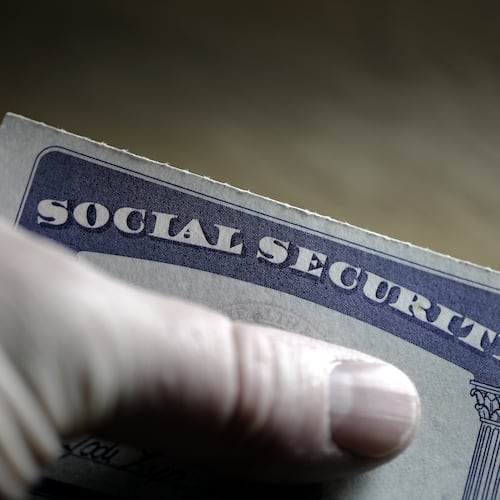Democratic presidential nominee Joe Biden began a visit to the battleground state of Wisconsin on Thursday by meeting with the family of Jacob Blake, the Black man whose shooting by a white police officer sparked days of sometimes violent protests.
Biden spent more than an hour in private with Blake’s father, Jacob Blake Sr., his siblings, and one of his attorneys, B’Ivory LaMarr. Blake’s mother Julia Jackson and another attorney, Ben Crump, joined by phone. Blake remains hospitalized after being shot seven times in the back as authorities tried to arrest him.
The trip, Biden’s first to Wisconsin of the general election campaign, is intended to draw sharp contrasts with President Donald Trump. Biden seeks to emphasize argument that he’s a unifying figure, able to lead the nation through a reckoning with systemic racism along with the coronavirus pandemic and its economic fallout.
Biden is expected to follow his private meeting with a public discussion later Thursday with community representatives in a city still reeling from Blake’s shooting and the protests.
Two months before Election Day, the trip presents Biden both opportunity and risks. He’s promised throughout his 2020 campaign that he can “unify the country” and find consensus even where it’s not readily apparent. The distinction has sharpened over a summer of nationwide protests. Some have been peaceful, but others, as in Kenosha, turned violent and destructive.
Reflecting that his trip comes amid the COVID-19 pandemic, Biden wore a mask as he arrived in Milwaukee. Yet he broke his usual health protocols to shake hands with a campaign staffer.
Kenosha was calm ahead of Biden’s visit. By midday, a small group of Biden supporters, some Black Lives Matter activists and a Trump supporter had gathered at a city center park that had been a focal point of demonstrations for days. When the president visited Kenosha on Tuesday, a few hundred pro- and anti-Trump protesters convened at the spot.
“No one’s perfect,” said Michelle Stauder, a 60-year-old retired Kenosha school teacher sitting on a barricade erected earlier and clutching a Biden-Harris campaign sign. “But I’m excited about Biden. And I like that he’s here spreading the word of peace and rebuilding.”
Kenneth Turner stood nearby with a Trump-Pence yard sign under his arm. “Everyone is blaming Trump for everything,” the 50-year-old Kenosha man said. “But problems here have been around a long time before Trump.”
Biden is a white man propelled to the Democratic nomination by Black voters. Since the May 25 death of George Floyd, a Black man killed by a white Minneapolis police officer, Biden has called for an overhaul of U.S. policing and embraced a national conversation on racism. That was a factor in Biden selecting California Sen. Kamala Harris as the first Black woman to join a major party presidential ticket.
During his own Kenosha trip Tuesday, Trump toured damaged buildings and discussed ways to quell unrest with law enforcement officials.
Trump is scheduled to hold a campaign rally Thursday evening in Pennsylvania, another key Rust Belt battleground. His campaign manager, Bill Stepien, said Biden’s visit to Kenosha was inappropriate, arguing Trump went because he is president and that Biden is only “injecting politics into a really serious situation that president helped solve.”
Biden on Wednesday repeated that “to engage in violence — burning, looting, the rest — in the name of protesting is wrong. And that person should be held accountable for their actions.” But he stood by First Amendment guarantees that “protest is a right.”
He also praised law enforcement, saying “the vast majority of police officers are good, decent, honorable women and men. They put on that shield every morning. They have a right to go home that night safely — the vast majority.”
Biden said he wants to overhaul policing, not to “defund the police,” but to require local forces to agree to certain best practices to get federal funding. He wants to spend more on services, such as mental health counseling, to ease social problems that fall to police to handle, sometimes with violent consequences.
About the Author
The Latest
Featured


